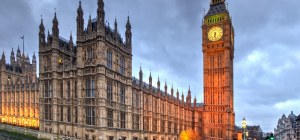34: Great Repeal Bill – The words stick in my craw

David Mundy Partner & Parliamentary Agent
On 16 and 17 January, the European Union (Withdrawal) Bill passed its remaining stages (Report Stage and Third Reading) in the House of Commons.
Report Stage lasted two days, and MPs used the opportunity to re-run a lot of issues discussed extensively at Committee Stage. The debate (and the many amendments and new clauses tabled) concerned both narrow ‘technical’ issues, such as:
- the Government’s powers under clause 7 to deal with deficiencies arising from withdrawal;
- how the Bill’s definition of ‘exit day’ will interact with the proposed EU (Withdrawal Agreement and Implementation) Bill (and Dominic Grieve’s amendment to clause 9));
- the Government’s decision not to transpose the Charter;
- the extent to which retained EU rights can be used to found a cause of action;
- which kinds of ‘retained EU law’ would be primary legislation (requiring an Act of Parliament to change it), and which secondary legislation (and so changeable by regulation); and
- whether the courts could strike down retained EU law or merely make declarations of incompatibility.
also broader, political, issues, such as how Brexit would affect devolution, the quality of the Government’s ‘impact assessments’ (and whether it should be required to produce more as Brexit unfolds), its conduct of Phase 2 of the Brexit negotiations (including dealing with the Irish border), and the relative economic benefits of leaving the EU or staying in the Customs Union or pursuing Free Trade Agreements.
MPs also debated (for the first time, to my knowledge) how Brexit would affect Anguilla, a British overseas territory in the Caribbean (pop. 15,263), which has close ties with (and shares the airport on) the neighbouring island of Saint Martin/Sint Maarten, which is 60% French and 40% Dutch (and so staying in the EU).
Despite the wide-ranging debate, however (and much as at Committee Stage, with the notable exception of ‘Grieve’s rebellion’), the only amendments and new clauses passed were those tabled by the Government. We reviewed most of these in Blog 33, with the exception of Amendments 37 and 38 (tabled later):
- Amendment 37 amends the effect of paragraph 3 of Schedule 1 by permitting legal challenges on or after exit day based on the general principles of EU law where those challenges (1) relate to anything which happened before exit day, (2) are made within 3 months of exit day (for reasons of certainty) and (3) are not for the disapplication or quashing of an Act of Parliament or the common law or anything related to them; and
- Amendment 38 ensures that paragraph 3(2) of Schedule 1 does not prevent certain legal challenges and other action on or after exit day on the basis of incompatibility with any of the general principles of EU law where those challenges or that action is also based on the necessary consequences of a decision of a court or tribunal made on or after exit day as a result of amendment 37 or under other transitional provisions in paragraph 27 of Schedule 8.
On devolution, as we predicted, the Government’s minor amendments to clause 11 (about the extent to which the devolved administrations and legislatures would be able to modify transposed EU law, in the context of the development of new UK-wide frameworks) were not sufficient to allay the concerns of Labour, the SNP or Plaid Cymru about how the Bill would affect the devolution settlements. Stephen Doughty (Labour) said:
‘… this Bill will not proceed with the consent of the Scottish Government, the Scottish Parliament, the Welsh Government or the Welsh Assembly without substantial and urgent changes over the next few weeks, or indeed today before the Bill reaches the other place.’
The Government had promised at Committee Stage that it would bring forward amendments to Clause 11 at Report stage, but it has now said these will come in the Lords. At Third Reading, the SSExEU said:
‘We have also intensified our positive discussions with the devolved Administrations and legislatures to find an agreed approach to clause 11, and we intend to bring forward amendments in the other place … We are committed to achieving legislative consent for this vital piece of legislation.’
Even some Scottish Tories saw this approach as unsatisfactory. For example, Stephen Kerr MP (a Scottish Tory) commented at Report Stage:
‘I make no bones about it: it sticks in my craw to think that unelected Lords will make the vital amendments to this vital constitutional Bill. It is not really good enough, and as a Member of the House of Commons I hang my head to think that we have somehow dropped the ball. The Bill will leave this House unamended and in an unsatisfactory state, and we are now dependent on unelected Lords to do our job for us.’
Given the Government has no majority in the Lords, it may find it more difficult to pass its amendments there than it would have in the Commons.
In respect of the Charter, we were slightly surprised that Dominic Grieve MP did not table an amendment in respect of the preservation of the Charter (and other EU ‘entrenched’ law) in UK law, given how exercised he has been about the issue. He explained that he did not do so for two reasons: first, he thought the lawyers in the House of Lords would address the matter in depth, and second, he thought the proposed transition period would prove lengthy, and would give the Government time to think again.
The lack of Tory backbench support on the issue meant that the Opposition’s Amendment 4 (Jeremy Corbyn, Labour) which would have retained the Charter Rights in UK law and afforded them the same level as protection as the rights in the Human Rights Act, was defeated by 317 votes to 299. Similarly, Amendment 57 (Kerry McCarthy, Labour) which aimed to replace clause 4 of the Bill with New Clause 19, in order to preserve, more comprehensively than under existing clause 4, rights, powers, liabilities, obligations, restrictions, remedies and procedures (particularly relating to the environment) derived from EU law and incorporated into domestic law via the European Communities Act 1972, was defeated by 319 votes to 296.
On animal sentience, New Clause 7 (Caroline Lucas, Green) was defeated by 320 votes to 297. It would have transferred the EU Protocol on animal sentience set out in Article 13 of Title II of the 2009 Lisbon Treaty into UK law under the Bill, so that the obligation on the Government and the devolved administrations to pay due regard to the welfare requirements of animals as sentient beings when formulating law and policy was not lost when the UK leaves the EU. The Government has published a draft Animal Welfare (Sentencing and Recognition of Sentience) Bill 2017 to the same end, but Lucas was concerned that a ‘gap’ would arise between exit day and the draft Bill becoming law. The Solicitor General committed to speak to Defra about the timetabling of the Government’s Bill.
On the status of transposed EU law, neither Dominic Grieve (New Clause 13) nor Joanna Cherry (SNP) (Amendment 42) pushed for a vote on their proposed changes (New Clause 13 and Amendment 42 respectively) which would clarified, under Clause 6, which transposed EU laws were to be treated as primary legislation and which secondary, on the basis that they accepted the Government needed more time to consider the matter, and it could be dealt with in the Lords.
Finally, the Government committed to consider further New Clause 22, to provide a scheme of interpretation (as a backstop) where the transposition necessary to avoid deficiencies has not been effected by regulations made under Clause 7. This may form a Government amendment in the Lords.
Enjoying the blog? Why not try the Great Repeal Bill Blog playlist on Spotify.
‘Now that I’ve learned to face the truth, the words stick in my craw’ (Kenny Chesney, The Bigger the Fool, The Harder The Fall)









